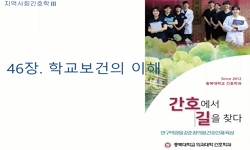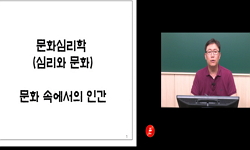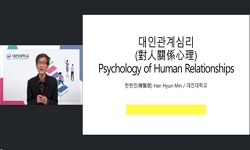본 연구는 학습부진 중학생이 가지는 자기개념의 프로파일을 살펴보고, 프로파일별로 가정 및 학교환경 변인과 어떤 관련이 있는지를 조사하였다. 이를 위해 ‘KELS 2013’의 4차연도 데이터...
http://chineseinput.net/에서 pinyin(병음)방식으로 중국어를 변환할 수 있습니다.
변환된 중국어를 복사하여 사용하시면 됩니다.
- 中文 을 입력하시려면 zhongwen을 입력하시고 space를누르시면됩니다.
- 北京 을 입력하시려면 beijing을 입력하시고 space를 누르시면 됩니다.

학습부진 중학생의 자기개념 프로파일과 가정 및 학교환경 변인의 영향 = The Effect of Home and School Environment on Self-Concept Profile of Middle School Low Achievers
한글로보기https://www.riss.kr/link?id=A107334809
- 저자
- 발행기관
- 학술지명
- 권호사항
-
발행연도
2021
-
작성언어
-
- 주제어
-
KDC
370
-
등재정보
KCI등재
-
자료형태
학술저널
-
수록면
37-58(22쪽)
-
KCI 피인용횟수
0
- 제공처
-
0
상세조회 -
0
다운로드
부가정보
국문 초록 (Abstract)
본 연구는 학습부진 중학생이 가지는 자기개념의 프로파일을 살펴보고, 프로파일별로 가정 및 학교환경 변인과 어떤 관련이 있는지를 조사하였다. 이를 위해 ‘KELS 2013’의 4차연도 데이터를 활용하여 잠재 프로파일 분석과 다항 로짓분석을 실시하였다. 그 결과, 학습부진 중학생의 자기개념은 전반적 높은 수준 집단, 가족 우세 집단, 평균 수준 집단, 전반적 낮은 수준 집단의 4가지 프로파일로 구분할 수 있었다. 가정 및 학교환경 변인이 자기개념 프로파일에 미치는 영향을 살펴보면, 전반적 낮은 집단을 준거로 삼았을 때 전반적 높은 집단에 속하는 데에는 모든 환경 변인이 유의한 영향을 미쳤고, 가족 우세 집단에 속하는 데에는 부모 상호작용, 부모 정서 지원, 부모 애착, 교우관계가 영향을 미쳤으며, 평균 집단에 속하는 데에는 부모 정서 지원, 부모 애착, 교우관계가 영향을 미쳤다. 이러한 결과를 바탕으로 학습부진 학생의 자기개념 향상을 위한 교육적 중재에 대한 시사점이 논의되었다.
다국어 초록 (Multilingual Abstract)
The purpose of this study was to explore the self-concept profiles of middle school low achievers, and investigate the effect of home and school environment on each profile. Latent profile analysis and multinominal logistic regression were conducted b...
The purpose of this study was to explore the self-concept profiles of middle school low achievers, and investigate the effect of home and school environment on each profile. Latent profile analysis and multinominal logistic regression were conducted by using the fourth year data of ‘KELS 2013’. The results showed that the self-concept profile of middle school low achievers was classified into four groups; high-level balanced group, family dominant group, middle-level balanced group, and low-level balanced group. The results of the effect of environmental variables on self-concept profiles showed that all environmental variables had an impact on being high-level balanced group, when the low-level balanced group was the reference group. Interaction with parents, parental emotional support, attachment, and peer relationship had effects on being family dominant group, while only parental emotional support, attachment, and peer relationship had influences on being middle-level balanced group. Based on the results of this study, implications for interventions to enhance low achieving students’ self-concept were discussed.
참고문헌 (Reference)
1 김영빈, "학습부진 중학생의 자아개념 향상과 학교적응을 위한 강점발견 프로그램 개발 및 효과성 검증" 사범대학부속중등교육연구소 60 (60): 805-841, 2012
2 김태은, "초등학생의 기초학력 미달 여부에 영향을 미치는 변인들의 효과 분석" 한국교육심리학회 26 (26): 505-521, 2012
3 노원경, "초등학교 학습부진학생의 정서·심리 지원을 위한 강점 발견 프로그램 개발 기초 연구" 한국교원교육학회 29 (29): 147-172, 2012
4 이규경, "초등학교 학습부진아의 교우관계 특성" 한국학습장애학회 7 (7): 47-67, 2010
5 박원모, "초등학교 6학년 학생들의 부모애착과 자아개념, 자기효능감 및 친구관계 간의 모형검증" 한국심리학회산하학교심리학회 5 (5): 41-59, 2008
6 김동일, "청소년의 자기개념과 학교생활적응의 관계에서 정신건강 문제의 매개효과: 학습부진 여부에 따른 다집단분석" 한국학습장애학회 17 (17): 107-128, 2020
7 남숙경, "중학생의 학업중단의도와 도움추구간의 관계에서 자아개념의 매개효과" 한국심리학회산하학교심리학회 12 (12): 73-86, 2015
8 송인섭, "자아개념검사의 구인타당화 연구" 한국교육평가학회 18 (18): 77-98, 2005
9 신용태, "자기회귀교차지연모형을 통한 청소년의 정신건강문제와 학교생활적응 간의 인과관계 검증" 한국청소년복지학회 18 (18): 1-19, 2016
10 정윤선, "우리나라 고등학생의 자기조절학습 유형 탐색" 한국심리학회산하학교심리학회 11 (11): 499-518, 2014
1 김영빈, "학습부진 중학생의 자아개념 향상과 학교적응을 위한 강점발견 프로그램 개발 및 효과성 검증" 사범대학부속중등교육연구소 60 (60): 805-841, 2012
2 김태은, "초등학생의 기초학력 미달 여부에 영향을 미치는 변인들의 효과 분석" 한국교육심리학회 26 (26): 505-521, 2012
3 노원경, "초등학교 학습부진학생의 정서·심리 지원을 위한 강점 발견 프로그램 개발 기초 연구" 한국교원교육학회 29 (29): 147-172, 2012
4 이규경, "초등학교 학습부진아의 교우관계 특성" 한국학습장애학회 7 (7): 47-67, 2010
5 박원모, "초등학교 6학년 학생들의 부모애착과 자아개념, 자기효능감 및 친구관계 간의 모형검증" 한국심리학회산하학교심리학회 5 (5): 41-59, 2008
6 김동일, "청소년의 자기개념과 학교생활적응의 관계에서 정신건강 문제의 매개효과: 학습부진 여부에 따른 다집단분석" 한국학습장애학회 17 (17): 107-128, 2020
7 남숙경, "중학생의 학업중단의도와 도움추구간의 관계에서 자아개념의 매개효과" 한국심리학회산하학교심리학회 12 (12): 73-86, 2015
8 송인섭, "자아개념검사의 구인타당화 연구" 한국교육평가학회 18 (18): 77-98, 2005
9 신용태, "자기회귀교차지연모형을 통한 청소년의 정신건강문제와 학교생활적응 간의 인과관계 검증" 한국청소년복지학회 18 (18): 1-19, 2016
10 정윤선, "우리나라 고등학생의 자기조절학습 유형 탐색" 한국심리학회산하학교심리학회 11 (11): 499-518, 2014
11 문은식, "부모의 학습지원행동과 초·중학생의 학업동기 및 학업성취도의 관계" 한국교육심리학회 17 (17): 271-288, 2003
12 김현욱, "부모의 정서적 교육지원과 학업자아개념의 자기회귀 교차지연효과 분석" 학습자중심교과교육학회 12 (12): 91-112, 2012
13 조경란, "부모교육 프로그램에 관한 메타분석" 한국재활심리학회 20 (20): 369-395, 2013
14 유계환, "낙관성이 학업자아개념에 미치는 영향: 교우관계, 교사와의 관계의 매개효과" 사단법인 아시아문화학술원 10 (10): 559-574, 2019
15 김동일, "기초학습기능 수행평가체제: 읽기검사" 학지사 2000
16 Baumeister, R. F., "The self in social psychology" Psychology Press 1-20, 1999
17 Demaray, M. K., "The relationship between social support and student adjustment : A longitudinal analysis" 42 (42): 691-706, 2005
18 Cross, S. E., "The relational-interdependent self-construal, self-concept consistency, and well-being" 85 (85): 933-944, 2003
19 McFarland, L., "Student-teacher relationships and student self-concept : Relations with teacher and student gender" 60 (60): 5-25, 2016
20 Cavioni, V., "Social and emotional learning for children with learning disability : Implications for inclusion" 9 (9): 100-109, 2017
21 Merrell, K. W., "Social and Emotional Learning in the Classroom: Promoting Mental Health and Academic Success" The Guilford Press 2010
22 Schunk, D. H., "Self-efficacy, Adaptation, and Adjustment: Theory, Research, and Application" Plenum Press 1995
23 Dijk, M. P. A., "Self-concept clarity across adolescence : Longitudinal associations with open communication with parents and internalizing symptoms" 43 : 1861-1876, 2014
24 Shavelson, R. J., "Self-concept : Validation of construct interpretations" 46 (46): 407-441, 1976
25 Elbaum, B., "School-based interventions to enhance the self-concept of students with learning disabilities : A meta-analysis" 101 (101): 303-329, 2001
26 Morrison, G. M., "Risk, resilience, and adjustment of individuals with learning disabilities" 20 : 43-60, 1997
27 Dumont, M., "Resilience in adolescents : Protective role of social support, coping strategies, self-esteem, and social activities on experience of stress and depression" 28 (28): 343-363, 1999
28 Bracken, B. A., "Positive self-concept : An equal opportunity construct" 18 (18): 103-121, 2003
29 Buhs, E. S., "Peer rejection, negative peer treatment, and school adjustment : Self-concept and classroom engagement as mediating processes" 43 (43): 407-424, 2005
30 Koth, C. W., "Multilevel study of predictors of student perceptions of school climate : The effect of classroom-level factors" 100 (100): 96-104, 2008
31 임진형, "Mental Health of Middle School Low Achieving Students and the Impact of Personal and Environmental Variables" 학습자중심교과교육학회 20 (20): 377-403, 2020
32 McDowell, I., "Measuring Health: A Guide to Rating Scales and Questionnaires" Oxford University Press 10-46, 1996
33 McCullough, G., "Life events, self-concept, and adolescents’ positive subjective well-being" 37 (37): 281-290, 2000
34 Vermunt, J., "Latent class models for clustering : A comparison with K-means" 20 (20): 36-43, 2002
35 Nishikawa, S., "Influence of perceived parental rearing on adolescent self-concept and internalizing and externalizing problems in Japan" 19 : 57-66, 2009
36 Chohan, B. I., "Impact of parental support on the academic performance and self-concept of the student" 4 (4): 14-26, 2010
37 Bracken, B. A., "Handbook of Positive Psychology in Schools" Routledge 2009
38 Swaim, K. F., "Global and domain-specific self-concepts of a matched sample of adolescent runaways and nonrunaways" 26 (26): 397-403, 1997
39 Szumki, G., "Exploring the Pygmalion effect: The role of teacher expectations, academic self-concept, and class context in students’ math achievement" 59 : 1-10, 2019
40 Burden, R. L., "Dyslexia and Self-concept: Seeking a Dyslexic Identity" Whurr 2005
41 Luyckx, K., "Developmental typologies of identity formation and adjustment in femaile emerging adults : A latent class growth analysis approach" 18 (18): 595-619, 2008
42 Sebastian, C., "Development of the self-concept during adolescence" 12 (12): 441-446, 2008
43 김동일, "DSM-5에 기반한 학습장애아동의 이해와 교육" 학지사 2016
44 Leondari, A., "Comparability of self-concept among normal achievers, low achievers and children with learning difficulties" 19 (19): 357-371, 1993
45 Altenbaugh, R. J., "Caring for kids : A critical study of urban school leaders" Falmer 1995
46 Asparouhov, T., "Auxiliary variables in mixture modeling: Using the BCH method in Mplus to estimate a distal outcome model and an arbitrary second model"
47 Jung, T., "An introduction to larent class growth analysis and growth mixture modeling" 2 (2): 302-307, 2008
48 Siegel, L., "An evaluation of the discrepancy definition of dyslexia" 25 : 618-629, 1992
49 Guay, F., "Academic self-concept, autonomous academic motivation, and academic achievement : Mediating and additive effects" 20 (20): 644-653, 2010
50 민수진, "ARCS 동기모델 적용 수업이 초등 학습장애 위험군 학생의 수학 과목흥미에 미치는 영향" 한국특수교육문제연구소 16 (16): 229-263, 2015
51 Coelho, V. A., "A multilevel analysis of the importance of school climate for the trajectories of students’ self-concept and self-esteem throughout the middle school transition" 49 : 1793-1804, 2020
동일학술지(권/호) 다른 논문
-
새로운 물리교수법 강의를 통한 예비물리교사들의 ‘좋은’ 과학수업관련 인식의 변화
- 서울대학교 교육종합연구원
- 이경호(Gyoungho Lee)
- 2021
- KCI등재
-
학교 성폭력의 실태 및 다면적 영향 요인에 관한 질적 연구
- 서울대학교 교육종합연구원
- 오인수(In Soo Oh)
- 2021
- KCI등재
-
초등학생의 언어폭력을 예측하는 변인들 간의 다차원적 구조 분석
- 서울대학교 교육종합연구원
- 정다혜(Jeong, Dahye)
- 2021
- KCI등재
분석정보
인용정보 인용지수 설명보기
학술지 이력
| 연월일 | 이력구분 | 이력상세 | 등재구분 |
|---|---|---|---|
| 2022 | 평가예정 | 재인증평가 신청대상 (재인증) | |
| 2019-01-01 | 평가 | 등재학술지 선정 (계속평가) |  |
| 2018-12-01 | 평가 | 등재후보로 하락 (계속평가) |  |
| 2015-01-01 | 평가 | 등재학술지 유지 (등재유지) |  |
| 2011-01-01 | 평가 | 등재 1차 FAIL (등재유지) |  |
| 2009-01-01 | 평가 | 등재학술지 유지 (등재유지) |  |
| 2006-01-01 | 평가 | 등재학술지 선정 (등재후보2차) |  |
| 2005-01-01 | 평가 | 등재후보 1차 PASS (등재후보1차) |  |
| 2004-01-01 | 평가 | 등재후보 1차 FAIL (등재후보1차) |  |
| 2003-01-01 | 평가 | 등재후보학술지 유지 (등재후보1차) |  |
| 2002-01-01 | 평가 | 등재후보 1차 FAIL (등재후보1차) |  |
| 1998-07-01 | 평가 | 등재후보학술지 선정 (신규평가) |  |
학술지 인용정보
| 기준연도 | WOS-KCI 통합IF(2년) | KCIF(2년) | KCIF(3년) |
|---|---|---|---|
| 2016 | 0.36 | 0.36 | 0.53 |
| KCIF(4년) | KCIF(5년) | 중심성지수(3년) | 즉시성지수 |
| 0.47 | 0.38 | 1.315 | 0 |





 KCI
KCI 스콜라
스콜라






